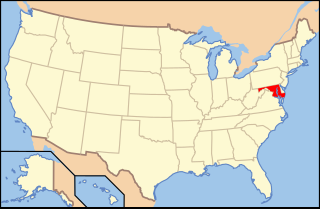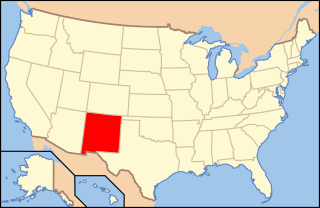Lithuanian law allows firearm possession on a shall-issue basis. With approximately 13.6 civilian firearms per 100 people, Lithuania is 58th most armed country in the world.
Lithuanian law allows firearm possession on a shall-issue basis. With approximately 13.6 civilian firearms per 100 people, Lithuania is 58th most armed country in the world.
When Lithuania was part of the Soviet Union, firearm possession was tightly controlled and most citizens were not allowed to keep firearms. In 1990, Mikhail Gorbachev ordered confiscation of all weapons in Lithuania. [1]
In 1993 Lithuania allowed possession of firearms for purposes of self-defense on a may-issue basis – the applicant needed to demonstrate a danger to one's life. In 1997 this requirement was abolished, making the process shall-issue. [4] In 2002 Lithuania passed new firearm law which is still in force today with some amendments. Since then number of legal firearms began to rise, doubling from 61,544 in 2002 to 127,984 in 2017.
Lithuanian law allows firearm possession for the following purposes:
The minimum age to own firearms is 23 for self-defense handguns, 21 for semi-automatic rifles, 18 years for semi-automatic shotguns and smooth-bore self-defense weapons and 16 years for sporting firearms. Every permanent resident of Lithuania of minimum age who passes the examination has the right to possess firearms for self-defense purposes. Article 12(5) forbids police from refusing granting license without valid reason. Any such refusal may be appealed in court.
Carrying firearms is allowed with a permit to carry. Police also must have good reason to refuse such permit as per Article 40.6. There should be no round in the chamber while carrying, except revolvers, which should not be cocked with the exception of direct threat to the person’s health or life.
Explosive missiles, mortars and flame throwers are prohibited.
As of 2019 there are 173,680 (or 6 per 100 people) registered firearms in Lithuania owned by 94,352 people including 37,473 rifles, 47,796 smoothbore long guns, 34,016 gas handguns, 30,165 pistols, 19,684 revolvers and 4,564 other kinds of firearms. [3]
Graphs are temporarily unavailable due to technical issues. |
Between 1995 and 2018 number of homicides using firearms has fallen by more than 98% from 252 to four, while overall number of homicides has fallen by 85% from 505 to 72. [5] [2]

A firearm is any type of gun designed to be readily carried and used by an individual. The term is legally defined further in different countries.
Gun laws and policies, collectively referred to as firearms regulation or gun control, regulate the manufacture, sale, transfer, possession, modification, and use of small arms by civilians. Laws of some countries may afford civilians a right to keep and bear arms, and have more liberal gun laws than neighboring jurisdictions. Countries that regulate access to firearms will typically restrict access to certain categories of firearms and then restrict the categories of persons who may be granted a license for access to such firearms. There may be separate licenses for hunting, sport shooting, self-defense, collecting, and concealed carry, with different sets of requirements, permissions, and responsibilities.

The right to keep and bear arms is a right for people to possess weapons (arms) for the preservation of life, liberty, and property. The purpose of gun rights is for self-defense, including security against tyranny, as well as hunting and sporting activities. Countries that guarantee the right to keep and bear arms include the Czech Republic, Guatemala, Ukraine, Mexico, the Philippines, the United States, Yemen, and Switzerland.
Firearms in Canada are federally regulated through the Firearms Act and related provisions of the Criminal Code. Regulation is largely about licensing and registration of firearms, including air guns with a muzzle velocity of more than 500 ft/s or 150 m/s and muzzle energy greater than 4.2 ft⋅lb or 5.7 J.
In the United Kingdom, access by the general public to firearms is subject to some of the strictest control measures in the world. Subject to licensing, members of the public may own rifles and shotguns. However, most handguns have been banned in Great Britain since the Dunblane school massacre in 1996. Handguns are permitted in Northern Ireland, the Channel Islands and the Isle of Man which have their own legislation. Scotland imposes an additional licensing regime on airguns, which is not mirrored in England and Wales.
Concealed carry, or carrying a concealed weapon (CCW), is the practice of carrying a weapon in public in a concealed manner, either on one's person or in close proximity. CCW is often practiced as a means of self-defense. Every state in the United States allows for concealed carry of a handgun either permitless or with a permit, although the difficulty in obtaining a permit varies per jurisdiction.

Firearms regulation in Switzerland allows the acquisition of semi-automatic, and – with a may-issue permit – fully automatic firearms, by Swiss citizens and foreigners with or without permanent residence. The laws pertaining to the acquisition of firearms in Switzerland are amongst the most liberal in the world. Swiss gun laws are primarily about the acquisition of arms, and not ownership. As such a license is not required to own a gun by itself, but a shall-issue permit is required to purchase most types of firearms. Bolt-action rifles do not require an acquisition permit, and can be acquired with just a background check. A reason is not required to be issued an acquisition permit for semi-automatics unless the reason is other than sport-shooting, hunting, or collecting. Permits for concealed carrying in public are issued sparingly. The acquisition of fully automatic weapons, suppressors and target lasers requires special permits issued by the cantonal firearms office. Police use of hollow point ammunition is limited to special situations.
Firearms regulation in Mexico is governed by legislation which sets the legality by which members of the armed forces, law enforcement and private citizens may acquire, own, possess and carry firearms; covering rights and limitations to individuals—including hunting and shooting sport participants, property and personal protection personnel such as bodyguards, security officers, private security, and extending to VIPs.
In South Africa, the Firearms Control Act 60 of 2000 regulates the possession of firearms by civilians. Possession of a firearm is conditional on a competency test and several other factors, including background checking of the applicant, inspection of an owner's premises, and licensing of the weapon by the police introduced in July 2004. In 2010, the process was undergoing review, as the police were not able to timely process either competency certification, new licences or renewal of existing licences. Minimum waiting period used to exceed 2 years from date of application. The Central Firearms Registry implemented a turnaround strategy that has significantly improved the processing period of new licences. The maximum time allowed to process a licence application is now 90 days.

Concealed carry, or carrying a concealed weapon (CCW), is the practice of carrying a weapon, either in proximity to or on one's person or in public places in a manner that hides or conceals the weapon's presence from surrounding observers. In the United States, the opposite of concealed carry is called open carry.
Criminal possession of a weapon is the unlawful possession of a weapon by an individual. It may also be an additional crime if a violent offense was committed with a deadly weapon or firearm.

Gun laws in New York regulate the sale, possession, and use of firearms and ammunition in the U.S. state of New York, outside of New York City which has separate licensing regulations. These regulations are very strict in comparison to the rest of the United States.
In Honduras, the commerce, ownership, possession and use of firearms is regulated. Escalation in crime and the use of firearms in the commission of crimes and homicides has brought political and public discourse to consider regulation of arms.

Gun laws in Maryland regulate the sale, possession, and use of firearms and ammunition in the U.S. state of Maryland.

Gun laws in New Jersey regulate the sale, possession, and use of firearms and ammunition in the U.S. state of New Jersey. New Jersey's firearms laws are among the most restrictive in the country.

Gun laws in New Mexico regulate the sale, possession, and use of firearms and ammunition in the state of New Mexico in the United States.
Guatemalan law allows firearm possession on shall-issue basis as a constitutional right. With approximately 12 civilian firearms per 100 people, Guatemala is the 70th most armed country in the world.
Gun laws in North Macedonia allow firearm ownership on shall-issue basis for hunters and collectors and may-issue for self-defense purposes. With approximately 30 civilian firearms per 100 people, North Macedonia is the 15th most armed country in the world.
Uruguayan law allows firearm possession on shall-issue basis. With approximately 35 civilian firearms per 100 people, Uruguay is the eighth most armed country in the world and most armed in Latin America.
Austrian law allows firearm possession on shall-issue basis with certain classes of shotguns and rifles available without permit. With approximately 30 civilian firearms per 100 people, Austria is the 14th most armed country in the world.